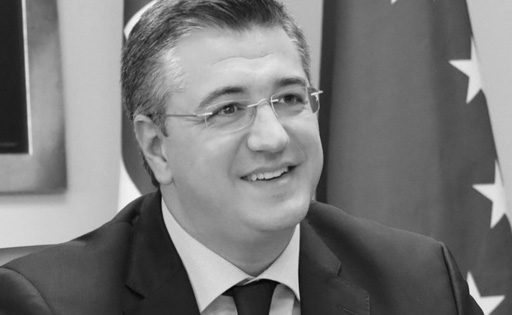Apostolos Tzitzikostas

Better future for the Euro-Mediterranean region continues to inspire
25 years ago, the ministers of foreign affairs of the EU and 12 southern and eastern Mediterranean countries set out to build a common area of peace and stability, to construct a zone of shared prosperity and to promote a real social, cultural and human partnership through the Barcelona Process. This great diplomatic success, achieved in a spirit of partnership and multilateralism, was a bold and inspiring move following the encouraging outcome of the Oslo peace process, marking the beginning of a season of dialogue.
While we must acknowledge that many of the Barcelona Process goals have yet to be achieved, promoting a better future for the Euro-Mediterranean region continues to move and inspire us today. The Barcelona Process was subsequently enhanced by the recognition of its innovative territorial dimension, created by mayors and regional leaders working together to raise the profile of the projects carried out by the Union for the Mediterranean.
Today, faced with the COVID-19 pandemic on the one hand and the climate emergency on the other, we are again reminded of how interconnected we are, and we need to make bold and inspiring moves. We need to step ahead together to promote a better future for the Euro-Mediterranean region. The economy all around the Mediterranean has been gravely hit. The important tourism sector has been one of the most affected areas and there has been a significant impact on the local economy throughout the three shores of the Mediterranean Sea. In addition, climate change is severely threatening health, food security, water resources, ecosystems and livelihoods in the Mediterranean. Neither the pandemic nor global warming know any borders. Only cooperation can secure a way out of this double crisis.
All levels of government are mobilised to mitigate the effects of COVID-19, starting with those closest to citizens. Local and Regional leaders have been on the frontline of response and recovery measures to protect and help their citizens, to guarantee basic and health services, to help protect jobs, and to support SMEs. Likewise, in the field of climate policy, local and regional authorities have a crucial role to play in fostering behavioural change, and mobilising local communities and businesses for climate action. In initiatives like the Global Covenant of Mayors, they foster a bottom-up approach to climate action in which communities make ambitious pledges in exchange for technical support.
None of the policies that are needed now for a successful transformation, for truly sustainable development in our common Euro-Mediterranean region, are implemented in a void. All politics are also local. This is why the European Committee of the Regions, together with associations of local and regional authorities, set up the Euro-Mediterranean Regional and Local Assembly (ARLEM) in 2010 to ensure that the UfM’s sectoral policies include a territorial dimension and to bring the voice of local and regional authorities from the three shores of the Mediterranean to the table of Euro-Mediterranean decision-makers. The aim is also to promote local democracy, encourage North-South and South-South dialogue as well as to exchange good practices between local and regional authorities and act as a platform for cooperation.
In the ten years of its existence, ARLEM has enjoyed fruitful cooperation with the Union for the Mediterranean secretariat established in the same year. Recent activities include promoting youth entrepreneurship for sustainable territorial development, and fostering the creation of favourable local entrepreneurial ecosystems to that end, encouraging the full involvement of women and young people through the ARLEM award – Young local entrepreneurship in the Mediterranean.
Furthermore, through the “Nicosia initiative of cooperation with Libyan municipalities” launched at its plenary session in Nicosia in 2016, ARLEM demonstrated how peer-to-peer cooperation can help to better provide basic services to citizens in a context of instability, economic crisis and state fragility. Those encouraging results highlight the contribution that cities and regions can make to successful cooperation in the Mediterranean.
The lesson we need to draw from the double pandemic and climate crisis is that there is no North and South. The challenges we are faced with today cut across borders and those lines – they concern humanity as a whole. Everyone has to learn from each other and all levels of governance have a full role to play. Regions and cities remain committed and ready both to play their own particular role and to contribute to the efforts of the Union for the Mediterranean, to ensure a better future for our citizens.

